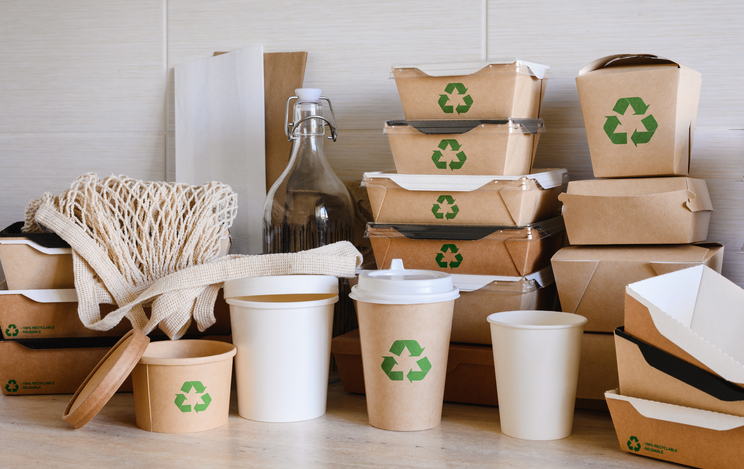The Packaging Waste (Data Reporting) (England) (Amendment) Regulations 2024 come into effect on 1 April 2024 and will require producers of packaging to report data related to the sustainability of their packaging.
The new guidance detailed in the Packaging Waste (Data Reporting) (England) (Amendment) Regulations 2024 follows on from the 2023 guidance which required producers to report data on any packaging placed on the market. This was then used to calculate the fees that producers would have to pay to cost the managing of the packaging for the next year.
Packaging producers are still required to report this data but should consider the following new amendments for 2024:
- “Household Packaging” – the definition provides an additional test for deciding whether packaging can be considered as non-household packaging. This involves looking at whether the packaging is supplied to a business or public institution which is the final user and how the packaging will be disposed of.
- Sellers must report packaging that is supplied to businesses.
- The division of responsibilities from brand owners, packers, importers, first owners and distributors has been clarified.
- The Environment Agency must publish a list of large producers to assist other producers determine if they need to report their own packaging.
As well as complying with the updated reporting requirements, producers also need to make sure they follow the rules about making claims as to the sustainability of product packaging.
The Committee of Advertising Practice (CAP) is responsible for creating and enforcing a number of codes on advertising. The UK’s advertising regulator, the Advertising Standards Authority (ASA), is then responsible for administering the advertising codes prepared by CAP. The combination of the two aim to ensure that all advertisements are honest and legal, including those made surrounding sustainability and the impacts of a company’s work.
The CAP Code includes various rules surrounding environmental claims:
- The basis of environmental claims must be clear.
- The meaning of all terms used in marketing communications must be clear to consumers.
- Absolute claims must be supported by a high level of substantiation.
- Marketing communications must not mislead consumers about the environmental benefit that a product offers.
- Environmental claims must be based on the full life cycle of the product.
- Suggestions must not be made that a claim of sustainability is universally accepted if there is a significant division of informed or scientific opinion.
- If a product has never had a demonstrably adverse effect on the environment, marketing communications must not imply that the product has been improved so as to not adversely impact the environment.
- For certain products, marketing communications and labels must also include energy-related information, information on the consumption of energy or price information.
Producers need to make sure that they do not engage in “greenwashing” when providing information about products and their packaging, i.e. they should not make environmental claims which are false or misleading and breach the CAP Code. Only claims that are factually accurate and that can be proven should be made. Any sweeping claim such as “environmentally friendly” will not satisfy the requirements under the CAP Code as it lacks clarity and could imply a greater impact to the environment than what is true.
If you have any questions as a result of this article, please contact [email protected]

